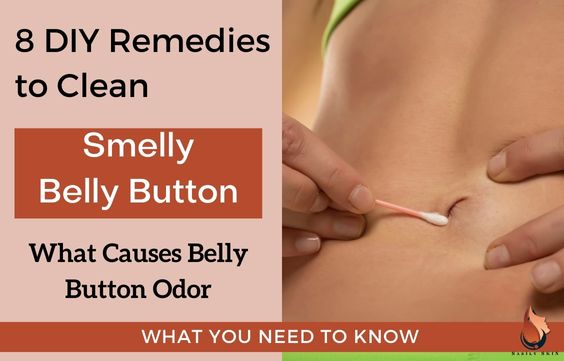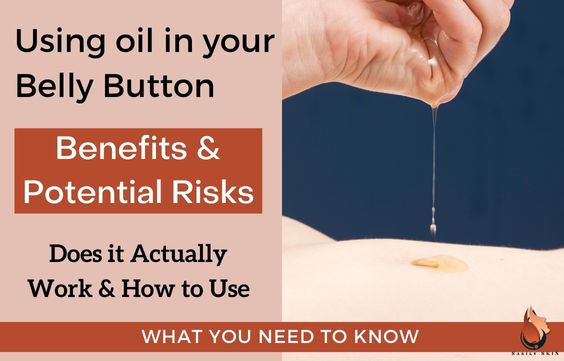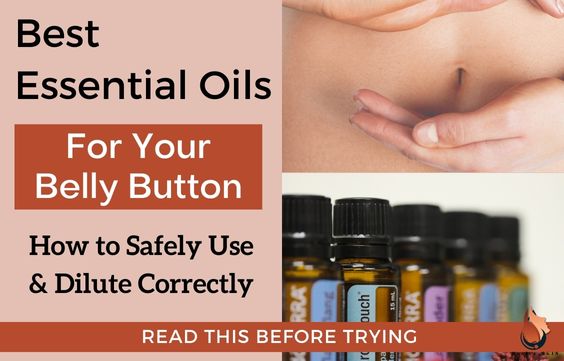7 Things You Should Never Put Inside Your Belly Button

As much as your belly button may seem unimportant, it is still a pretty sensitive part of your body that can get injured if you do not care for it properly.
While many people use oils and skin cleaning solutions to treat infections and avoid odor, there are a few things that you should avoid.
Related Article – 8 DIY Remedies to Clean Smelly Belly Button
What You Should Avoid
1- Hot water
Just like other parts of your skin, using water that is hot or boiling can burn you. This is even riskier because the skin inside your belly button is thinner and more sensitive.
Treating burns inside this area is a recipe for disaster as it can quickly become infected.
Related Article – Best Oils For Your Belly Button- That Actually Work
2- Acids & Chemical Exfoliants
To clean our belly buttons, we might think that chemical exfoliation is a good idea. However, because of the way that the area is shaped and how sensitive the skin is, this is not a good idea.
Acids and chemical exfoliants will absorb much quicker. And because the belly button is shaped like a cavity, sometimes with small creases, it is harder to control how much solution is being trapped inside. This can cause chemical burns and excess peeling in that area. These can quickly become infected and difficult to treat.
3- Pure (undiluted) Essential Oils
This is another way that you can chemically burn and injure your skin, especially in and around your belly button.
Pure essential oils are much too strong to be used directly on the skin, especially in sensitive areas. Essential oils must be diluted before being used anywhere on your skin.
Related Article – Best Essential Oils for Your Belly Button & How to Use
4- Household Bleach
You would think that it is common knowledge that you cannot use bleach (the kind we use for cleaning the house and washing clothes) on your skin. But sadly, many people still try this. This can seriously damage your skin.
Do not use wipes or other cleaning materials that are soaked in or made with household bleach or Sodium Hypochlorite.
Related Article – Benefits & Risks of Using Oil in Your Belly Button
5 – Topical Bleaching Agents like Hydroquinone
Even though these creams and applications are skin-safe, they may be too strong to be used inside your belly button.
If you must use them, consult your dermatologist first, do patch tests, and dilute your applications so that too much is not absorbed into the area.
6- Hand sanitizer
You should not use hand sanitizer inside your belly button.
While the formula may be gentle, many of them leave sticky residues behind that can cause the area to become moist and damp. Even though the sanitizer is supposed to get rid of bacteria, after a while, the residue will encourage more bacterial growth. So this kind of defeats the purpose.
7- Deodorants
You should not need to use deodorant inside your belly button. If the area is smelly, it is probably infected or has bacteria build up. It needs to be cleaned and kept dry.
Deodorant will most likely help the smell temporarily but it will keep the area too moist which will just worsen bacteria growth
Frequently Asked Questions (FAQs)
Yes, you can use hydrogen peroxide to clean the inside of your belly button. However, it must be a low concentration and will need to be diluted.
Yes, you can use rubbing alcohol to clean the inside of your belly button. However, you should not use it if the area has broken skin. You can dilute the solution.
How Do You Clean Your Belly Button And Keep It Clean
Your belly button needs to be cleaned and kept clean and dry. This is quite easy.
You can clean the area with simple soap and water, salt water, hydrogen peroxide, rubbing alcohol and even white vinegar.
Check this article out to read all about using these methods correctly: DIY Remedies For Smelly Belly Button
Another way to keep your belly button clean and odor-free is to keep it dry. Make sure that you dry the area and inside it properly after you shower and after cleaning it.
If you are using a moisturizer, use one that is thin and that will absorb completely into the skin. If the environment is hot and you sweat a lot, skip the lotion altogether. You can also use thin layers of thin oils. Just make sure that you are cleaning them off regularly.
Check this article out to read more about the Best Oils For Your Belly Button- That Actually Work
Sources
What Is An Essential Oil Burn, And How Do You Avoid Them?
Hydroquinone – American Osteopathic College of Dermatology (AOCD)




